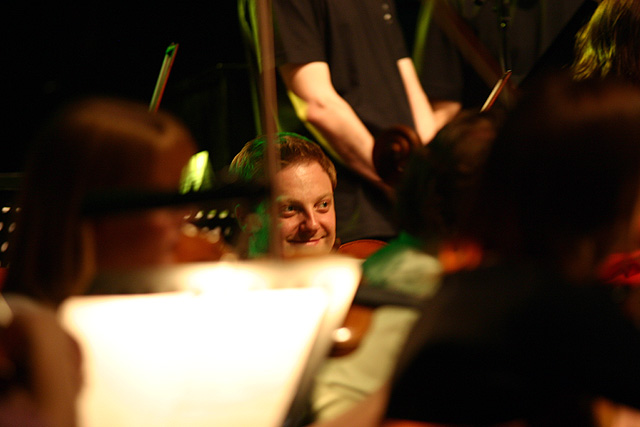The whole world of serious music is itself the subject of incredible prejudice. It is ignored good-naturedly, or scornfully dismissed as irrelevant by a now sizeable and growing proportion of the general public, who know nothing of any tradition before Elvis Presley and care less. (Giles 1982:3)
And...
So we have a fascinating situation: on the one hand a tradition legitimate and honoured, successor to the Romantic, Classical and Baroque, going back to Renaissance and Medieval times, but hidebound in many matters. Next to it, another tradition, recent and clearly illegitimate, artificial, of mammon, in many ways barbaric, all too prey to the whim of the moment and the wave of the manipulator's chequebook; but at least utterly free to go where it will within its limited abilities and 'cultural' boundaries. The first is the undoubted arena for, surely, the ultimate in vocal and instrumental technique, for mankind's most profound musical experiences and statements. The second, for the most part and with the exception of the art form 'jazz' and certain musicianly groups like 'Sky', comprises ephemera perhaps more of interest to the sociologist than the true artist musician. (Giles 1982:4-5)
The irony that these comments and countless others like them appear in a chapter entitled 'Prejudice and the Status Quo' will surely be lost on nobody. Neither, indeed, is the irony of two lengthy citations, both written in the 12th century, in the following chapter on the development of organum singing and the rise of the Paris Notre Dame School. It would appear that Giles in fact part of greater, not to mention highly legitimate, tradition of moaning about the development of music, a tradition stretching back a thousand years.
Whence hath the Church so many organs and musicall instruments? To what purpose, I pray you, is that terrible blowing of belloes, expressing rather the crashes of thunder than the sweetnesse of the voyce? To what purpose serves that contraction and inflection of the voyce? [...] Sometimes, which is a shame so to speake, it is enforced into a horse's neighing: sometimes the masculine vigour being laid aside it is sharpened with the shrillnesse of a woman's voyce: now and then it is writhed and retorted into a certain artificial circumvolution. (Aelred of Rievaulx, Speculum Charitatis, 1123)
As Giles points out, "John of Salisbury was also worried by much of what he heard":
The very service of the Church is defiled, in that before the face of the Lord, in the very sanctuary of sanctuaries, they, showing off as it were, strive with effeminate dalliance of wanton tones and musical phrasing to astound, enervate, and dwarf simple souls. [...] When this type of music is carried to the extreme it is more likely to stir lascivious sensations in the loins than devotion in the heart. (Policraticus, trans. John of Salisbury, 12th century).And he wasn't even talking about Elvis Presley...


No comments:
Post a Comment